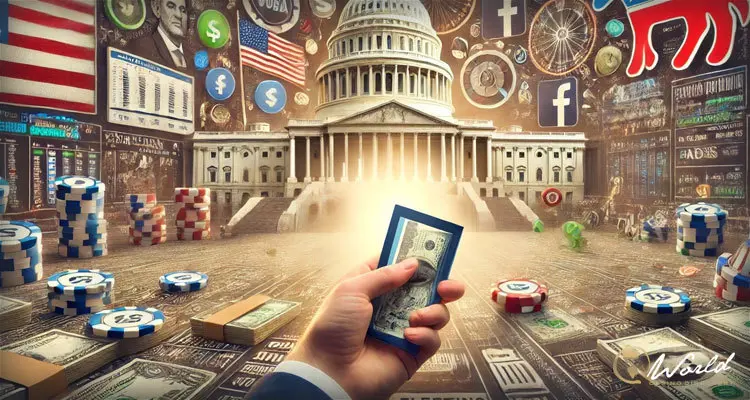In the week leading up to the recent US election, Australia’s major online gambling operators significantly increased their advertising spending, focusing on novelty bets that captured public intrigue. Operators like TAB, Ladbrokes, Sportsbet, and Neds spent a combined total of approximately $240,000 on Facebook advertisements. These ads featured bets on various aspects of the US election, ranging from the likelihood of Donald Trump mentioning fraud in his speeches to speculations about the color of his tie.
Detailed ad expenditures and campaign focus:
As reported by The Guardian, according to data from Meta’s ad library tool, these companies were among the top advertisers in Australia during the election period, from October 31 to November 6. TAB led the expenditure with $100,225, making it the single highest spender on Facebook ads during this timeframe. The focus on political novelty bets was stark, with no advertisements related to other significant betting events like the Melbourne Cup, which occurred just a day before the US election.
The advertising strategies were particularly tailored, with TAB alone spending between $175,000 and $200,000 on a single ad campaign aimed at younger men under 35. Ladbrokes promoted bets on whether the losing US election candidate would concede on the night and if Trump’s speech would touch upon legal challenges or fraud. Meanwhile, Neds leveraged its campaign on more light-hearted bets, such as the potential endorsement of Kamala Harris by NFL star Travis Kelce and the color of Trump’s election night tie.
Sportsbet contributed between $25,000 and $30,000 towards a digitally generated advertisement featuring caricatures of Kamala Harris and Donald Trump, emphasizing the extensive range of markets available for the US election. This approach not only highlighted the playful aspect of betting but also demonstrated the sophisticated advertising technologies employed by betting firms to capture and retain viewer attention.
Impending regulatory changes and industry responses:
These marketing efforts come at a critical time as the Australian government prepares to respond to the Peta Murphy inquiry, which has recommended a phased ban on online gambling ads within three years. The communications minister, Michelle Rowland, has indicated that legislation to curb gambling advertisements could be introduced soon, aiming to reduce the potential harm associated with gambling.
The gambling industry, represented by figures like Kai Cantwell, CEO of Responsible Wagering Australia, argues against a total ban on gambling ads. Cantwell advocates for a balanced approach that uses technology to limit ad exposure to minors and vulnerable groups without completely prohibiting them. He emphasizes that overly strict regulations could push Australian bettors towards unregulated offshore markets, which do not offer the same level of consumer protection as domestic options.
Amid these regulatory developments, voices like Sarah Hanson-Young, the Greens’ communications spokesperson, have criticized the delay in implementing stricter advertising guidelines. As The Guardian reports, she stated: “Every day that the government and Peter Dutton fail to legislate the full gambling ad ban as recommended by the Peta Murphy inquiry is another day the gambling lobby profits from human misery. There is a tragic human cost to the insidious influence of the gambling lobby and the public have had a gutful of weak excuses from politicians. The PM should get on with the full ad ban now.”


